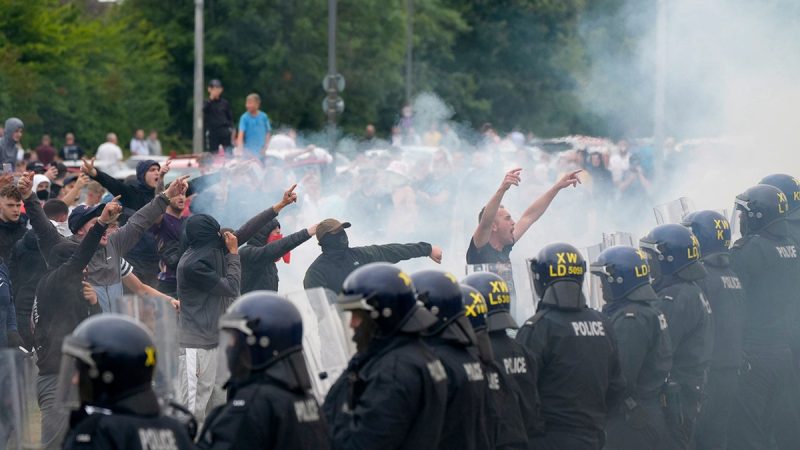Article Body:
In recent geopolitical updates, the UK government has shown remarkable vigilance towards the online usage and regulation of free speech, employing a robust scrutiny approach to content disseminated via the internet. Latest reports indicate that the government has issued stark warnings to the public to think before you post, a move that has sparked considerable concern amongst civil liberties groups, journalists, and social media users at large.
This aggressive tightening of the reins on online communication seemingly sprouts from governmental intentions to suppress the spread of disinformation and fake news, majorly proliferated amidst a global health crisis. The government justified this move, stating it aims to protect public health and national security from cyber threats, disinformation, or misinformation that might breed chaos and propagate panic.
Despite these seemingly good intentions, the government’s action instigates significant questions concerning its alignment with the bedrock principles of free speech. Critics argue that while controlling unsubstantiated information might indeed be commendable, this should not translate into oppressive speech regulations that stifle the citizens’ inherent and natural right to free expression.
Civil liberties advocate groups such as Big Brother Watch have subsequently spoken out against this perceived onslaught on free speech. Big Brother Watch, in particular, denounced the UK government’s stance, asserting that this supposed crackdown is not in the best interest of a free and democratic society. The group further elaborated that such restrictions catalyse a ‘chilling effect’ on free speech and encourage self-censorship, where people hesitate to express their views due to fear of potential repercussions.
Moreover, journalists have expressed unease about the implication of these regulations on their profession. They fear this new development might heavily limit journalistic independence, and thereby impact their ability to investigate and report appropriately on matters of public interest.
Social media users and influencers too have not been spared from the implications of this new regulatory stance. Many content creators have voiced their concerns regarding how these rules will affect their creative freedom and the authenticity that they strive to portray through their platforms.
Notably, the discussions surrounding these occurrences bring attention to the fine balance between maintaining public safety, protecting individual liberties, and nurturing a democratic society. Governmental controls on the cyber narrative, while ostensibly in the public’s interest, should not become a medium to infringe on freedom of expression.
Legal experts suggest that instead, the government could adopt more nuanced approaches – such as investing in digital literacy programs, promoting fact-checking, and encouraging responsible journalism – without suffocating the essence of free speech.
In a world increasingly dominated by online interactions, the role of government regulation of digital content is indeed controversial. The reality remains that while the UK government’s role in mitigating the spread of misinformation is imperative, it is equally crucial to preserve the essence of free speech in a democratic society. It is fundamental that the ability to speak without fear remains intact as the United Kingdom navigates this complex digital terrain.
Indeed, it is a delicate balance to strike – competency in safeguarding us against disinformation on the one hand whilst assuring the preservation of our liberties on the other. But nations that strive to foster an atmosphere of trust and transparency can hope to achieve this balance, thus encouraging responsible use of freedom, not just its mere existence.






























